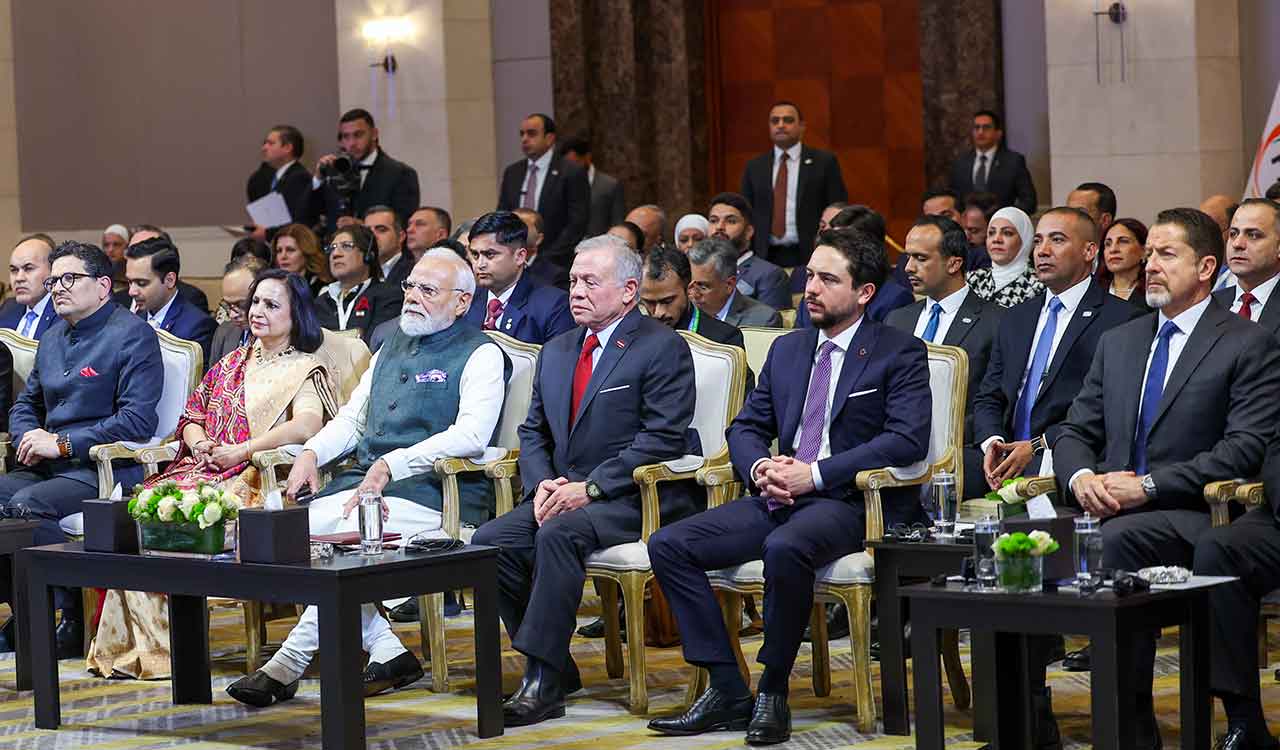Opinion: Get rid of corporatocracy
Rising wealth inequality calls for governments to revisit the approach of development which is biased towards ‘superyacht’ classes.

By Samudrala VK
Hyderabad: The recent Oxfam International report on economic inequality has not only highlighted the dire state of the poor across the world but also brought to the limelight the evils of the global capitalist economy. Though this is not the first time that Oxfam has unearthed such dichotomies existing in the modern-day economy, the wordings and appeals that it has made to governments across the world differentiate it from the earlier ones. Going by the statements and details provided in the report, it is clear that income inequality is not organic in nature but is created by the classes that have access to power. The title of the report ‘Survival of the richest’ justifies the sad reality of the global economy.
Also Read
Lop-sided taxation policies, skewed development plans and inequality of opportunities are driving the world economy to a state of collapse. Since the dawn of human civilisation, humanity hasn’t come across the scale of inequalities as now. Before discussing the measures that governments across the world should adopt to reduce income gap, let us delve into the prevailing policies and practices that are aggravating the issue of inequality. Though inequality has many facets like economic, social, political, cultural and technological, it is wealth ie, economic inequality, that others depend upon.
Tax Magic
Taxation is an economic instrument that rests in the hands of political authority to redistribute wealth and limit the income gap in a society. An ideal state imposes higher taxes on the rich and delivers benefits to the sections that are at the bottom of the social ladder. However, with the advent of the neo-capitalist state, the mechanism of the imposition of tax is tweaked to benefit the privileged classes.
The neo-capitalist empire is spreading a false narrative on taxation to surpass the obligation of redistribution. Under the token of the ‘trickle-down’ effect, it is forcing the state to axe the tax rates on the profits that corporate classes make and mitigate the incurred losses by rising indirect taxes on the poor. It views state intervention in economics in a negative light. Yet, it uses the same state to its advantage. It is this ability to mask its true character that makes the neo-capital state appear foolproof. Obscurantism and cleverness of corporate classes prevent both intellectuals and hoi-polloi to get a clear idea of neo-capital ideology and the way it functions.
While corporate honchos and well-to-do sections are climbing up the wealth pyramid at jet speed, the hand-to-mouth sections are struggling at the bottom of it owing to the conditions of immobility and the unequal distribution of resources, thereby opportunities. Visibly, the present-day income or wealth gap between the working class and the corporates is wider than that of masters-slaves in the ancient epoch and feudal-serfs during the medieval era.
In the neo-capital environment, the non-intervention of state is considered a prerequisite for development. Progress and growth are seen solely from an economic lens. It is said that wealth percolates to the lower rung of society when the state ensures hassle-free ecology to the capitalist economic cycle. However, the innate ironies in the global capitalist economy make it highly vulnerable to shocks and falls. On the one hand, the corporates try to make profits by putting the lives of the working class at the subsistence level and on the other hand, they force the same working class to afford the goods and services delivered by them at a high cost. Recessions are viewed as temporary shocks. In fact, they are used as excuses by the corporate class to free the state from its prime objective of providing welfare.
Ironically, at a time when the western nations are gearing up their economies in the direction of welfare, the developing world, the home to two-thirds of humanity, is adopting the economic model that was tried, tested and failed in the capitalist world. Economic saturation, growing social capital and backlash against austere measures by the working class in the western world are forcing corporates to implement their nefarious motives in the eastern part of the world.
Welfare Vs Development
No other issue in modern-day politics is as contentious as the ‘welfare vs development’ debate. It is preposterous to arrive at a conclusion on which one outweighs the other. As a matter of fact, they are inseparable. It is the neo-capitalist propaganda that has created the welfare-development divide for the purpose of profit-making. It is worth quoting here that welfare is an integral part of the development and vice versa.
The neo-capitalist development model is based on the exploitation of natural and human resources. Climate change is the result of ruthless economic policies adopted by the exploitative class. It is clear that it is the poor who are bearing the brunt of ecological disasters. Destruction under the guise of development has become neo-normal. Large-scale displacement, loss of habitat, cultural degradation and intergenerational poverty are the byproducts of new-age development projects. State, rather than acting as ‘Guardian of all’, has turned into a channel through which corporates can multiply their profits. Democracy is metamorphosed into corporatocracy. Surplus production at the cost of Nature, lack of demand due to unaffordability and debt traps to fulfil basic needs have become the order of the day. The assets that took decades to build by the governments are transferred to private hands. Buzzwords like managerial efficiency and optimal utilisation are being used as excuses to transfer ownership.
Neo-capitalism channelises the aggression of the populace against inequalities towards the state. It uses the state as a shield to guard itself from the attack. Besides, it subverts the state and coerces it to depend on corporates for its survival. In neo-capital polity, it is not the state that decides the fate of corporates but the other way round.
The ongoing recession demands a strong commitment from civil society to revive the welfare state that has disappeared from the global economy during the years of Thatcherism. At the same time, it calls for governments to revisit the approach of development as the current one is biased towards the ‘superyacht’ classes.
Governments across the world should take the present economic situation as an opportunity to address the flaws prevailing in the global economy. Redistribution of wealth and welfare measures like housing, health and education have to be high on the list.

Related News
-
Speaker concludes hearing on disqualification petition against Danam Nagender
11 mins ago -
Consumers’ body wants BIS Standards Clubs set up in schools, colleges in Telangana
13 mins ago -
Telangana’s finances struggle over weak revenues and mounting debts
17 mins ago -
IIT Hyderabad to host MSME Tech Connect 2026
18 mins ago -
Khammam, Warangal police excel in Telangana Police Sports and Games Meet
37 mins ago -
GHMC launches MyCURE app for faster civic grievance redressal
39 mins ago -
KCR extends Ramzan greetings on Ramzan commencement
1 hour ago -
Traffic diversions announced for Chatrapathi Shivaji Jayanthi procession in Hyderabad
1 hour ago




